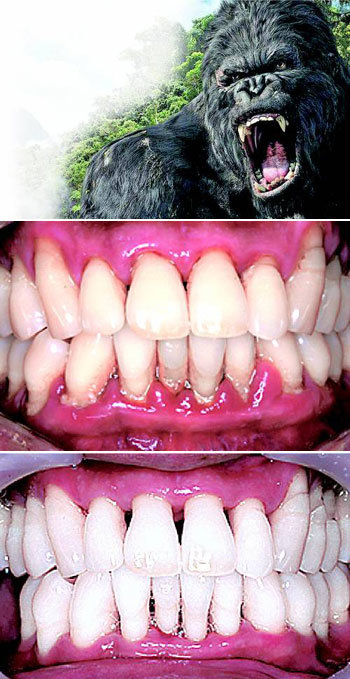Dental Stress

For many patients whose gum disease worsens abruptly, the cause is often stress. Because of this, more and more dentists are conducting psychology tests like personality tests and the Minnesota Multiphasic Personality Inventory for patients who suffer from gum disease, halitosis, jaw discomfort, and teeth grinding.
Bacteria is the greatest cause of oral diseases like gum disease, and therefore oral health is vulnerable to stress.
But professor of Oral Medicine at Kyunghee University Hong Jeong-pyo says, Whether or not you have oral diseases, there is not much of a difference in the quantity or types of bacteria in your mouth. This means that bacteria alone cannot account for the gum diseases, and that stress is a big factor in those differences.
Professor of Periodontics at Seoul National University Koo Young adds, Almost 80 percent of adults have gum disease, but usually its latent until your immune system grow weak due to stress and the inflammations get worse. Kids preparing for college, the unemployed, and people who face bankruptcy have frequently complained of these symptoms.
Professor Hong believes that stress affects the components of immunity in our saliva. Stress disturbs that nerves that control saliva.
According to Hongs thesis published in the recent issue of Korean Academy of Oral Medicine Magazine, stress debilitates the functions of salivary glands, and in the worst case scenarios, destroys them.
When given acute stress, a lab rats salivary glands will start to collapse after four days, and after the fifth, completely disintegrate. If there is chronic stress, such as preventing the rats from sleeping with lights, a slow destruction of the salivary gland cells will begin after about three weeks.
Hong explains, When the immune system is down, the mouth is the first to react. People who have AIDS notice that their mouths are the first to show the changes.
If left untended, the gum disease will worsen into gingivitis, so when you feel that your gum disease is acting up, check your stress and fatigue levels for your immune system.
And if you want to eliminate the bacteria, get rid of the plaque and tartar on your teeth.
Proper brushing is essential to remove plaque, but as it is insufficient, getting regular cleanings is necessary.
Professor Koo warns, The damage done to the periodontal tissue for patients who do not receive cleanings as opposed to groups that receive cleanings every six months or yearly is thrice, whereas the speed is four times faster.
If gum diseases are not treated, gum inflammation like gingivitis can occur, and this can spread to the bone that lies beneath.
Gingivitis can be treated to some degree with cleanings, but when it reaches the bone, surgery must be performed to scrape away the inflammation beneath the gums. If it further spreads to the roots, tooth loss may result.
Koo advises, Even if there is gum inflammation, the bacteria can slowly be cleared away in the gaps between tooth and gum. Since the symptoms are so slow, it leads to negligence and consequently, the loss of teeth.
Na-Yeon Lee larosa@donga.com







